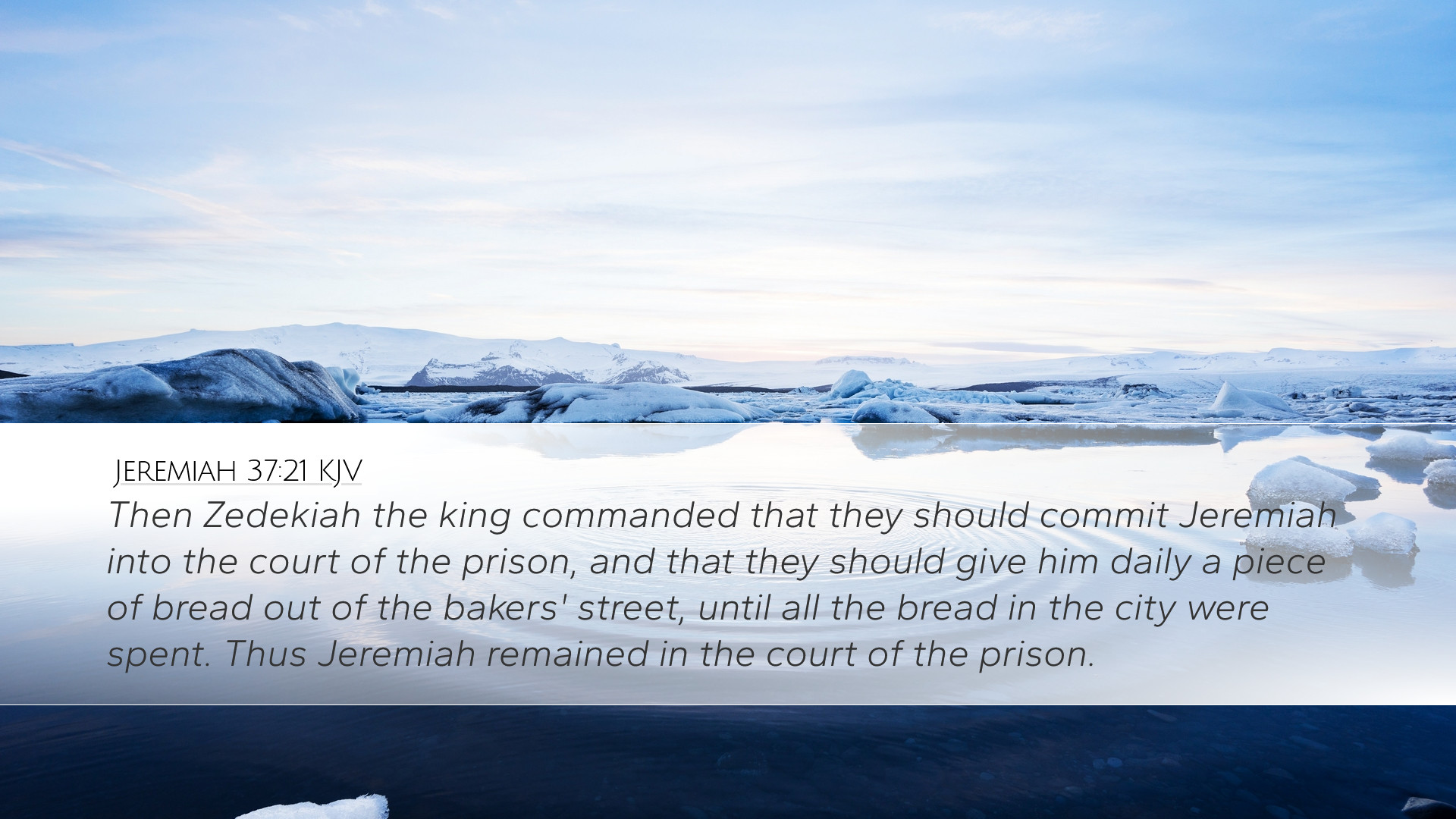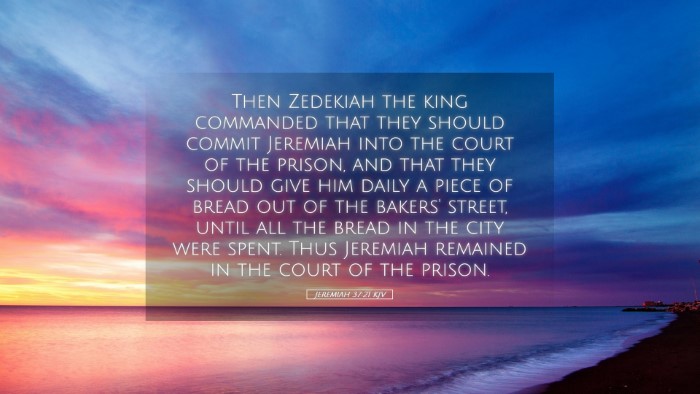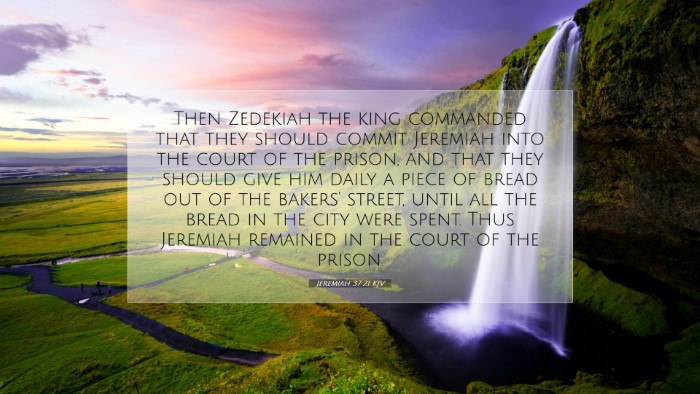Commentary on Jeremiah 37:21
In Jeremiah 37:21, we find a vivid depiction of the circumstances faced by the prophet Jeremiah during a tumultuous period of Israel’s history. This verse states:
"Then King Zedekiah commanded that they should confine Jeremiah in the court of the prison, and that they should give him daily a piece of bread out of the baker’s street, and a piece of bread from the pot, till all the bread in the city was spent." (Jeremiah 37:21 ASV)
Contextual Overview
This verse occurs during the Babylonian siege of Jerusalem, highlighting the extremities faced not only by the people but specifically by the prophet of the Lord. King Zedekiah's treatment of Jeremiah serves as a lens through which the struggles of faith and prophecy can be examined.
Insights from Commentaries
Matthew Henry's Commentary
Matthew Henry points out the grave injustice and the irony of the situation. Jeremiah, who faithfully delivered God’s word warning of doom, is imprisoned while a false narrative of hope is propagated by other prophets. Henry emphasizes that Jeremiah was imprisoned for telling the truth, which is a common theme throughout the Scriptures.
Henry elaborates on the limited provisions given to Jeremiah, highlighting the scarcity during the siege. The king’s provision of “a piece of bread” is symbolic of both God's sustenance and the frailty of the earthly power represented by Zedekiah. In essence, the king's authority wanes in the face of God’s impending judgment.
Albert Barnes' Notes on the Bible
Albert Barnes offers a detailed examination of the socio-political context of Jeremiah’s imprisonment. He discusses how Zedekiah, torn between his fears of Babylon and his desire to maintain a semblance of authority, resorted to confining Jeremiah. Barnes suggests that Zedekiah’s actions reflect his internal moral conflict and the futility of human authority when opposed to divine will.
Additionally, Barnes notes the significance of the daily provision for Jeremiah. It reveals God's ongoing care for His prophet even amidst dire conditions. This sustenance, though meager, symbolizes God’s presence and the sustenance of His word in the darkest of times.
Adam Clarke's Commentary
Adam Clarke emphasizes the prophetic significance of Jeremiah's situation, interpreting it as a representation of Israel itself—imprisoned and besieged by sin and calamity. He argues that just as Jeremiah was confined, the people of Israel were entrapped by their disobedience and reversal from God.
Clarke draws attention to the contrast between the abundance of God’s provision and the strife of humanity. The bread, though limited, acts as a metaphor for the word of God, which remains a source of life, even in scarce conditions. Clarke encourages readers to reflect on the sufficiency of God's word and how it nourishes even those imprisoned by their circumstances.
Theological Reflections
The tension between divine revelation and human authority is a recurring theme in biblical narrative. The treatment of Jeremiah can serve as a case study for scholars and theologians in understanding the broader implications of prophetic ministry in a world often opposed to divine truth.
- Human Rejection of Divine Truth: Jeremiah’s confinement illustrates humanity's tendency to reject God's message when it contradicts prevailing beliefs.
- God’s Sustaining Power: This passage reflects God's faithfulness in sustaining His servants in times of crisis, reinforcing the idea that God’s provision transcends physical limitations.
- The Role of Prophets: The verse exemplifies the prophetic role as one that is often met with hostility; yet, it also serves to remind believers of the courage required to remain steadfast in truth.
Applications for Today
For pastors, students, and theologians, Jeremiah 37:21 offers multiple areas for application:
- Courage in Ministry: Like Jeremiah, modern-day ministers may face opposition for standing firm in biblical truth. This passage encourages perseverance despite adversity.
- Faith in Provision: As God provided for Jeremiah in a difficult time, believers are reminded of God's faithfulness in their own challenges, urging them to trust in divine sustenance.
- Critical Examination of Authority: This verse prompts reflection on the relationship between divine authority and human governance, urging scholars and theologians to assess where their loyalties lie.
Conclusion
Jeremiah 37:21 serves as a poignant reminder of the struggles faced by those who seek to follow God wholeheartedly in a world often resistant to His truth. Through the insights derived from historical context, commentary, and theological reflection, this passage offers rich material for contemplation and application in the lives of believers today.


